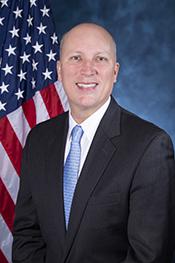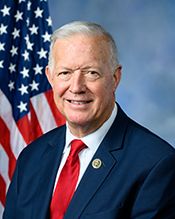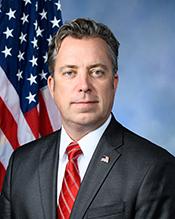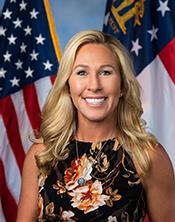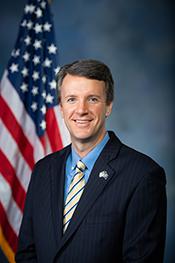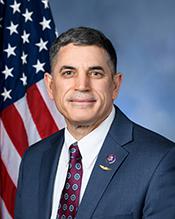0
0
0
To amend the Internal Revenue Code of 1986 to create health freedom accounts available to all individuals.
1/14/2025, 9:05 AM
Summary of Bill HR 317
Bill 119 HR 317, also known as the Health Freedom Account Act, aims to amend the Internal Revenue Code of 1986 to establish health freedom accounts that would be accessible to all individuals. These accounts would provide individuals with a tax-advantaged way to save and pay for their healthcare expenses.
Under this proposed legislation, individuals would be able to contribute to their health freedom accounts on a tax-deductible basis. The funds in these accounts could then be used to cover a wide range of healthcare expenses, including medical treatments, prescription medications, and preventive care services.
One of the key goals of the Health Freedom Account Act is to give individuals more control over their healthcare decisions and expenses. By providing a tax-advantaged savings vehicle for healthcare costs, this bill aims to empower individuals to take charge of their own health and well-being. Supporters of the bill argue that health freedom accounts would promote greater transparency and competition in the healthcare industry, ultimately leading to lower costs and better quality care for all individuals. Critics, however, raise concerns about the potential impact of this legislation on government healthcare programs and the overall affordability of healthcare for low-income individuals. Overall, Bill 119 HR 317 represents a significant effort to reform the healthcare system in the United States by giving individuals more options and flexibility in how they save and pay for their healthcare expenses. As this legislation moves through the legislative process, it will be important to closely monitor the potential implications and outcomes of implementing health freedom accounts for all individuals.
Under this proposed legislation, individuals would be able to contribute to their health freedom accounts on a tax-deductible basis. The funds in these accounts could then be used to cover a wide range of healthcare expenses, including medical treatments, prescription medications, and preventive care services.
One of the key goals of the Health Freedom Account Act is to give individuals more control over their healthcare decisions and expenses. By providing a tax-advantaged savings vehicle for healthcare costs, this bill aims to empower individuals to take charge of their own health and well-being. Supporters of the bill argue that health freedom accounts would promote greater transparency and competition in the healthcare industry, ultimately leading to lower costs and better quality care for all individuals. Critics, however, raise concerns about the potential impact of this legislation on government healthcare programs and the overall affordability of healthcare for low-income individuals. Overall, Bill 119 HR 317 represents a significant effort to reform the healthcare system in the United States by giving individuals more options and flexibility in how they save and pay for their healthcare expenses. As this legislation moves through the legislative process, it will be important to closely monitor the potential implications and outcomes of implementing health freedom accounts for all individuals.
Current Status of Bill HR 317
Bill HR 317 is currently in the status of Bill Introduced since January 9, 2025. Bill HR 317 was introduced during Congress 119 and was introduced to the House on January 9, 2025. Bill HR 317's most recent activity was Referred to the House Committee on Ways and Means. as of January 9, 2025
Bipartisan Support of Bill HR 317
Total Number of Sponsors
2Democrat Sponsors
0Republican Sponsors
2Unaffiliated Sponsors
0Total Number of Cosponsors
15Democrat Cosponsors
0Republican Cosponsors
15Unaffiliated Cosponsors
0Policy Area and Potential Impact of Bill HR 317
Primary Policy Focus
Alternate Title(s) of Bill HR 317
To amend the Internal Revenue Code of 1986 to create health freedom accounts available to all individuals.
To amend the Internal Revenue Code of 1986 to create health freedom accounts available to all individuals.
Comments
Sponsors and Cosponsors of HR 317
Latest Bills
Providing amounts for the expenses of the Committee on Ethics in the One Hundred Nineteenth Congress.
Bill HRES 131December 12, 2025
Providing for congressional disapproval under chapter 8 of title 5, United States Code, of the rule submitted by the Bureau of Land Management relating to "Central Yukon Record of Decision and Approved Resource Management Plan".
Bill HJRES 106December 12, 2025
Expressing the sense of the House of Representatives in condemning the Government of the People's Republic of China for its harassment and efforts to intimidate American citizens and other individuals on United States soil with the goal of suppressing speech and narratives the People's Republic of China finds unwelcome.
Bill HRES 130December 12, 2025
Providing for congressional disapproval under chapter 8 of title 5, United States Code, of the rule submitted by the Bureau of Land Management relating to "North Dakota Field Office Record of Decision and Approved Resource Management Plan".
Bill HJRES 105December 12, 2025
Providing for congressional disapproval under chapter 8 of title 5, United States Code, of the rule submitted by the Bureau of Land Management relating to "Miles City Field Office Record of Decision and Approved Resource Management Plan Amendment".
Bill HJRES 104December 12, 2025
Providing amounts for the expenses of the Select Committee on the Strategic Competition Between the United States and the Chinese Communist Party in the One Hundred Nineteenth Congress.
Bill HRES 104December 12, 2025
Critical Access for Veterans Care Act
Bill S 1868December 12, 2025
OATH Act of 2025
Bill S 1665December 12, 2025
A bill to extend the authority for modifications to the Second Division Memorial in the District of Columbia.
Bill S 1353December 12, 2025
Saving Our Veterans Lives Act of 2025
Bill S 926December 12, 2025
